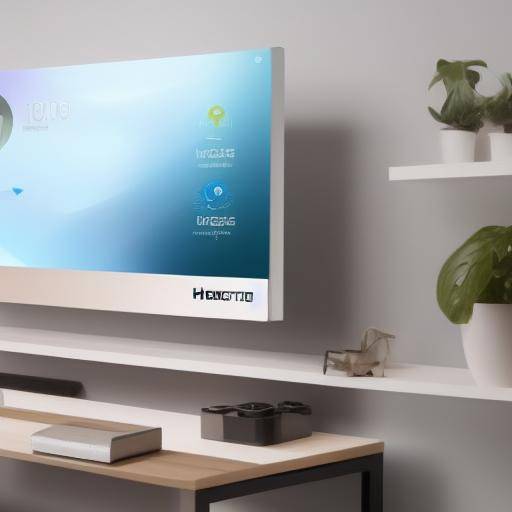
Introduction
The technology has transformed the way we interact with our environment, including managing household expenses. This article focuses on exploring how technology tools can enhance efficiency and give greater control over household economic management. It will provide readers with a solid understanding of how to use technology to effectively monitor and reduce costs.
History and Background
The administration of household expenses has experienced significant evolution, moving from simple bookkeeping to the integration of technological tools. From the popularization of budget applications to payment automation, technology has radically changed our approach to financial management. Even the old spreadsheets have been replaced by cloud-based financial management software. The adoption of technological tools has enabled households to improve efficiency in cost management, providing greater visibility and control over financial flows.
Detailed Analysis
Cost management tools, such as expenditure and budget tracking applications, provide a real-time view of purchasing habits and spending patterns. These tools offer the efficiency of automatically categorizing transactions, saving time and reducing errors. The integration of technology in cost management not only improves efficiency, but also provides greater control over household finance. Real-time monitoring allows users to identify areas of excessive or unexpected expenses, which in turn gives them the ability to take corrective measures immediately.
Exhaustive examination
By comparing budget applications and cost tracking to traditional practices, it is clear that technology offers a more effective way of analysing and controlling household expenses. Providing a clear and concise overview of finances, these tools allow for informed and proactive decision-making, which is critical to reducing unnecessary costs.
Comparative analysis
When comparing similar tools, it is observed that differentiation lies in its ability to provide a holistic view of household expenses and, at the same time, provide an intuitive and customizable user experience. While some tools focus on a simplified approach, others offer detailed analysis and forecasts of future expenses.
Practical Tips and Recommendations
By using technology tools to monitor and reduce household costs, it is essential to establish clear and realistic financial targets. Automating recurring payments and establishing overexpenditure alerts can also help maintain financial control.
Industry ideas and Expert Reviews
According to financial experts, the adoption of technological tools is essential to ensure effective financial management in the current environment. In addition, the continuous evolution of these tools provides opportunities for even more informed and efficient decision-making in the future.
Case Studies and Real Life Applications
One notable case is that of a family that managed to reduce its expenditure by 15% in one year by using a cost tracking application. This case illustrates how the effective implementation of technological tools can have a direct impact on reducing domestic spending.
Future Trends and Predictions
The integration of artificial intelligence into financial management tools is expected to provide more advanced and personalized predictive analysis, which will allow users to further optimize their savings strategies.
Conclusion
The technology offers powerful tools to monitor and reduce household expenses. By taking advantage of these tools, families can achieve more efficient financial management and greater control over their finances. As technology continues to evolve, financial management tools are expected to become even more sophisticated, providing users with the ability to make more accurate and effective financial decisions.
Frequently asked questions
1. What technology tools are useful for monitoring household expenses?
Cost tracking applications, cloud-based budget programmes and financial analysis tools are particularly useful for monitoring household expenditures.
2. How can technology tools improve efficiency in cost management?
Technological tools automate tasks, provide detailed analysis and provide a real-time vision of household finance, which in turn improves efficiency in cost management.
3. What are the challenges associated with the adoption of technological tools for cost management?
Some challenges may include learning curve to use new tools, financial data security and cost associated with some technological solutions.
4. How can technology tools provide greater control over household expenses?
By providing a clear and detailed overview of spending habits, the technological tools allow users to identify areas of overexpenditure and take immediate remedial action, which provides greater control over household expenses.
5. What are the emerging trends in the use of technology to reduce household costs?
There is a growing trend towards the integration of artificial intelligence into financial management tools, which will allow more advanced and personalized predictive analysis.
6. What are some practical tips for maximizing the technological tools for household financial management?
Establish clear financial targets, automate recurring payments, establish overexpenditure alerts and perform regular monitoring of spending habits are practical tips to maximize technological tools.
With the growing availability of technology tools and the steady evolution of technology-based financial management, families have at their disposal powerful resources to monitor and reduce household costs. By understanding how to effectively use these tools, people can achieve more efficient financial management and greater control over their personal finances.






















































